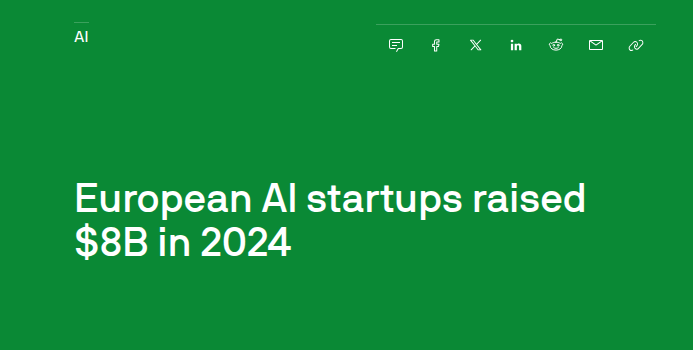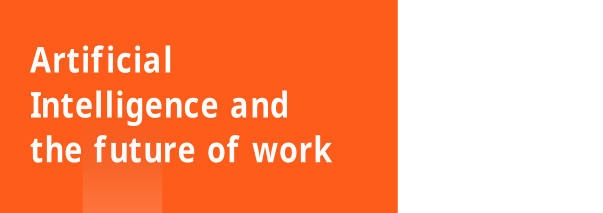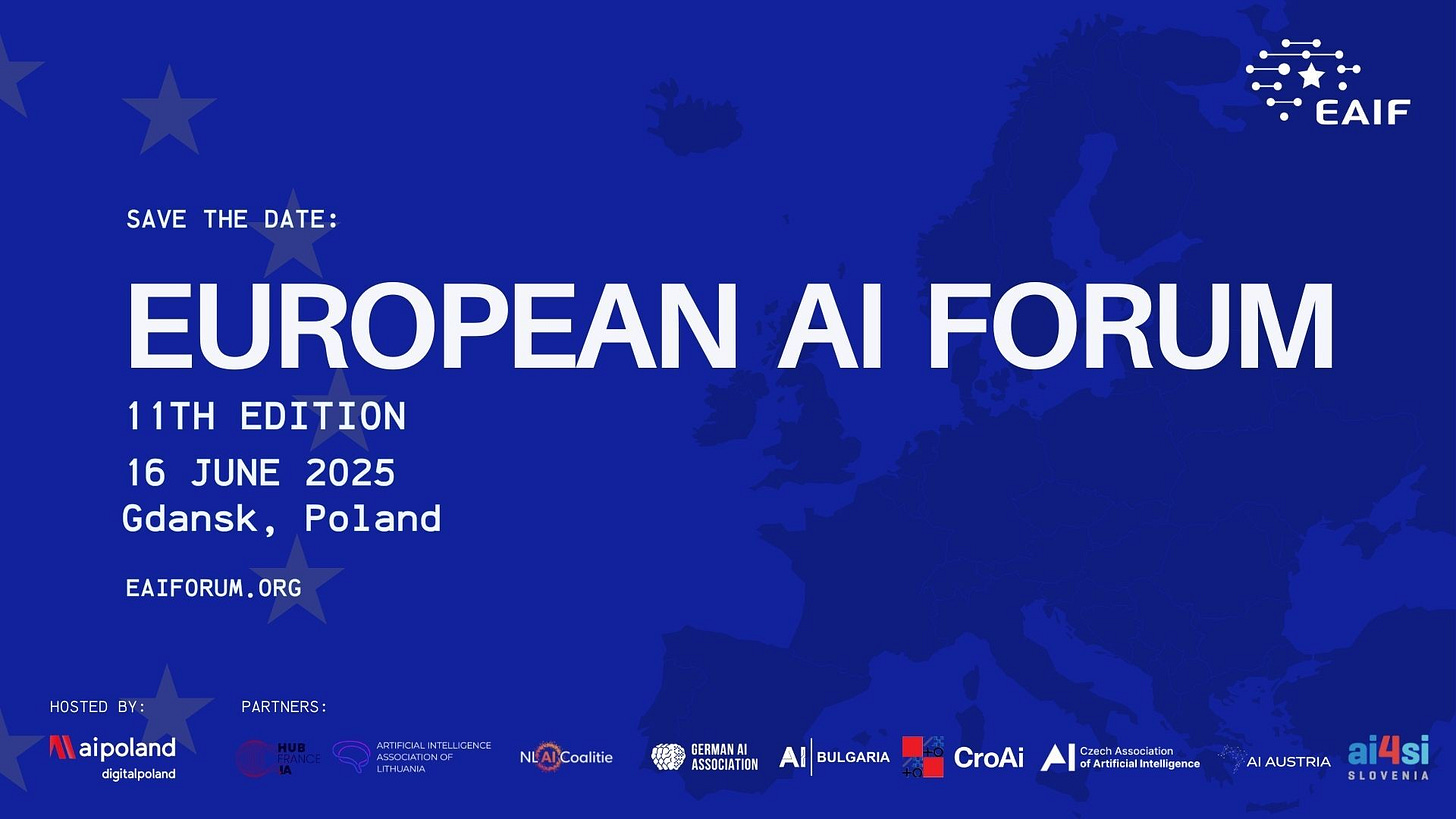EAIF newsletter
European AI Forum (EAIF) newsletter provide you on a monthly basis with insights, news and updates from the European AI ecosystem. AI regulation and EU policy, national AI activities, upcoming events.
In this 2025 February newsletter you can find the following topics:
European AI startups raised $8B in 2024
Regulatory updates
Europeans support use of AI in the workplace
Save the date 11th European AI Forum in Gdansk
European AI startups raised $8B in 2024
France hosted the Artificial Intelligence Action Summit, where global tech leaders and heads of state will converge in Paris to discuss major investments and diplomatic initiatives aimed at ensuring AI safety and mitigating environmental impacts. In anticipation of the summit, early-stage and growth investment firms teamed up to release the French AI Report, which reveals that Europe’s AI startup ecosystem is booming—with 2024 witnessing roughly $8 billion in funding, largely directed towards seed and Series B rounds, and key hubs emerging in the U.K., France, Germany, and the Nordics.
The report also highlights France’s dynamic AI landscape, home to over 750 startups that have created 35,000 jobs and foster robust research with 2,000 scientists and 600 doctoral students. While established names like Mistral AI and Poolside make headlines, most French AI startups are innovating within specific sectors such as health—focusing on imaging, drug discovery, and treatment improvement—and climate, emphasizing agtech, carbon and energy management, and new materials. This diverse, rapidly growing ecosystem underscores that the AI revolution is distributed across various sectors rather than being dominated by a single country or company.
Also in the AI Action Summit in Paris the EU announced the InvestAI initiative, aiming to mobilize €200 billion for AI, with a specific €150 billion pledge to supercharge startups: Europe’s AI Push: €150 Billion Pledge to Supercharge European AI Startups. Regarding funding details, the €150 billion private pledge was from investors, while the EU's €50 billion contribution included €20 billion for AI gigafactories, drawn from existing programs like Horizon Europe, meaning it's not entirely new money EU launches InvestAI initiative to mobilise €200 billion of investment in artificial intelligence.
Regulatory updates
The European Union's AI Act, a pioneering legal framework, saw significant milestones in February 2025. On February 2, 2025, the ban on AI systems deemed to pose unacceptable risks, such as social scoring and behavioral manipulation, came into effect, requiring companies to ensure compliance and avoid prohibited practices European AI Act Provisions Applicable from February 2025. This enforcement, part of the AI Act's risk-based approach, aimed to foster trustworthy AI, with fines up to 7% of annual turnover for non-compliance, as noted in industry reports.
Another regulatory event was the unexpected withdrawal of the AI Liability Directive proposal on February 11, 2025, announced by the European Commission in its 2025 work programme CDT Europe’s AI Bulletin: February 2025. This move, made during ongoing Parliament discussions, delayed avenues for addressing AI-induced harms, raising concerns about internal communication, as Commissioner Michael McGrath defended the directive the same day.
Additionally, the European Commission released the draft of the General-Purpose AI Code of Practice, incorporating feedback from nearly 1,000 stakeholders AI Round-Up. This draft, relevant for models post-August 2025, included measures on transparency and risk mitigation, with further refinements planned, reflecting ongoing efforts to align with the AI Act.
Europeans support use of AI in the workplace
The Eurobarometer report “Artificial Intelligence and the future of work” captures European citizens’ views on the impact of digital technologies—including AI—on employment, the economy, and society. The survey, commissioned by the European Commission, finds that while many Europeans see these technologies as beneficial—enhancing job efficiency, boosting productivity, and improving quality of life—they also express caution. A majority believe that AI and related digital tools can positively affect work and daily living, yet they stress the need for careful management, transparent use, and strong privacy protections to mitigate risks such as job displacement and increased workplace monitoring.
At the same time, the report highlights a broad confidence in digital skills among respondents, with many feeling equipped to take advantage of digital learning and technological innovations in their jobs. However, there remains a significant portion of the population that lacks even basic digital competencies, underscoring regional and demographic disparities. Moreover, while employers generally provide necessary tools and training for digital technologies, opinions vary across EU member states regarding the adequacy of these provisions and the overall impact of AI on work practices.
Save the date 11th European AI Forum in Gdansk
Have news to share: newsletter@eaiforum.org
Contact: info@eaiforum.org
Website: eaiforum.org
LinkedIn: linkedin.com/company/eaiforum




